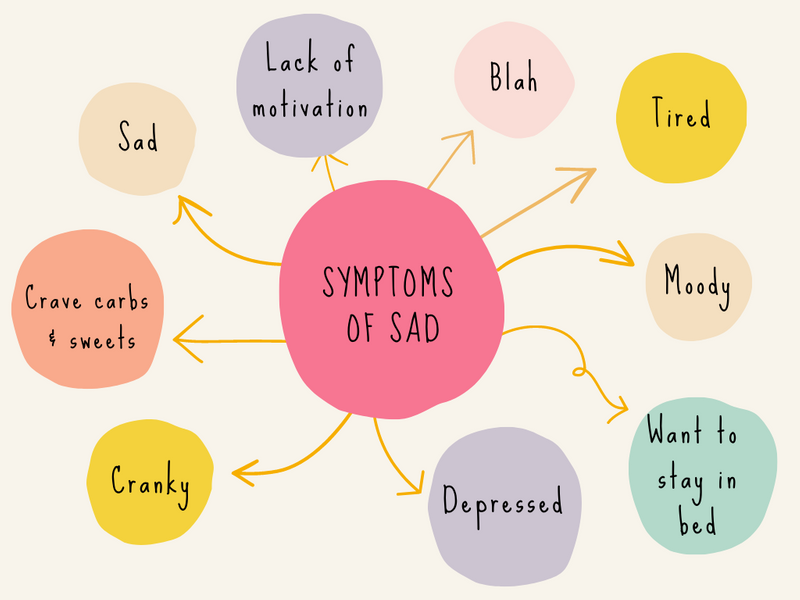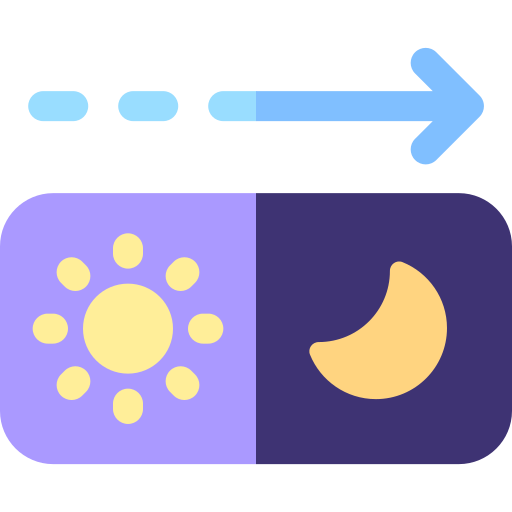Does winter have you feeling like...
-- People illustrations by Storyset from Freepik
If you feel moody and listless every time winter rolls around, it's possible you have a form of depression called seasonal affective disorder, also known as SAD.
What Is Seasonal Affective Disorder?
The main feature of SAD is that you notice that your mood shifts along with the calendar.
You might experience the symptoms below as one season changes to another:

Who Gets SAD?

SAD is most common in regions of the world where light decreases during winter. People who already live with depression may see their symptoms worsen when light decreases.
The majority (80%) of people who have SAD are women.
In Canada, about 2-5% of the population have severe symptoms; 10-15% of the population have mild symptoms, and another 25-35% experience the "winter blues."
Quiz
Who is more likely to experience seasonal affective disorder?
Why Does It Happen?
While there's no exact reason people are diagnosed with SAD, the Mayo Clinic and NIMH suggest the following:
The changes in seasons disrupt some people's biological clock ("circadian rythm").
2. The season change can affect certain chemicals in the body, and this can impact mood and behavior negatively.
As a result of these chemical imbalances:
Serotonin, a brain chemical that affects mood, decreases.
Melatonin, a chemical that affects our sleep patterns and mood, increases.
Combat SAD

Light therapy is one of the best options!
It usually starts working within a few days to a few weeks.
Use a light therapy lamp for 30-45 minutes each day.
Try a dawn simulator, an alarm clock-type device that exposes you to gradual light as you wake in the morning.
Make an effort to get outside or sit by a sunny window each day.
Other Helpful Actions
Be sure to consult with your doctor or therapist to determine which treatment is best for you!
Self-care, such as a healthy diet and exercise, keeps your body strong.
Spending time with friends and loved ones can raise your spirits.
Psychotherapy (especially cognitive behavioral therapy) can help you identify and change negative thoughts and behaviors that may be making you feel worse.
Tryptophan, an over-the-counter supplement, helps promote depleted serotonin levels.
Consider speaking to your doctor about prescription medication if your symptoms are moderate to severe. If taken before the symptoms appear, these medications might be able to fend off SAD.
Take Action
For effective ways to alleviate the symptoms of SAD:

Your feedback matters to us.
This Byte helped me better understand the topic.
